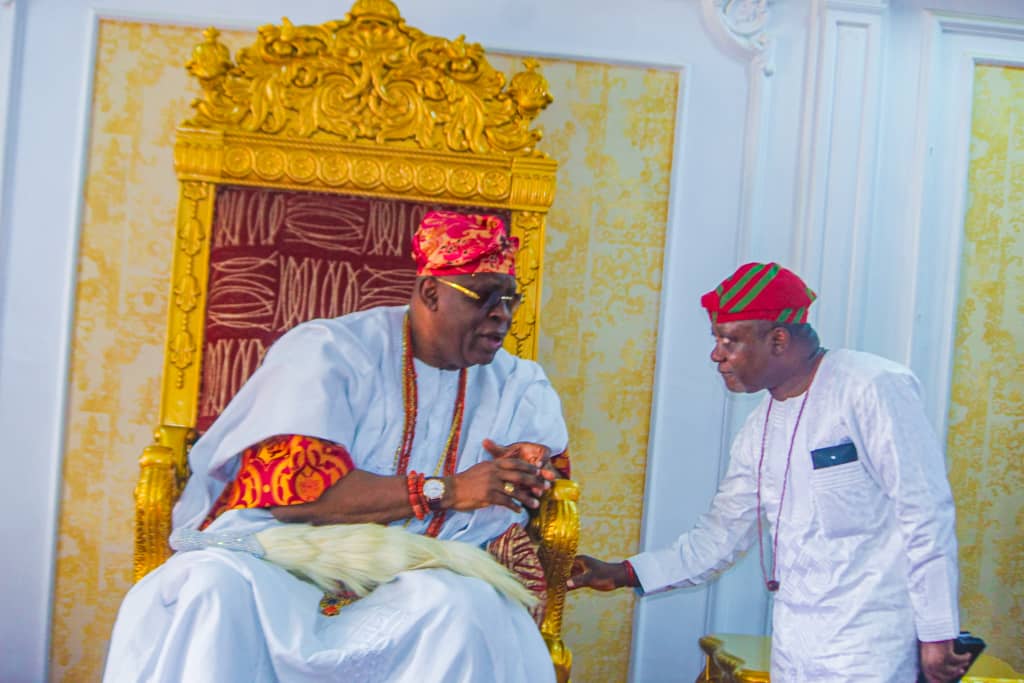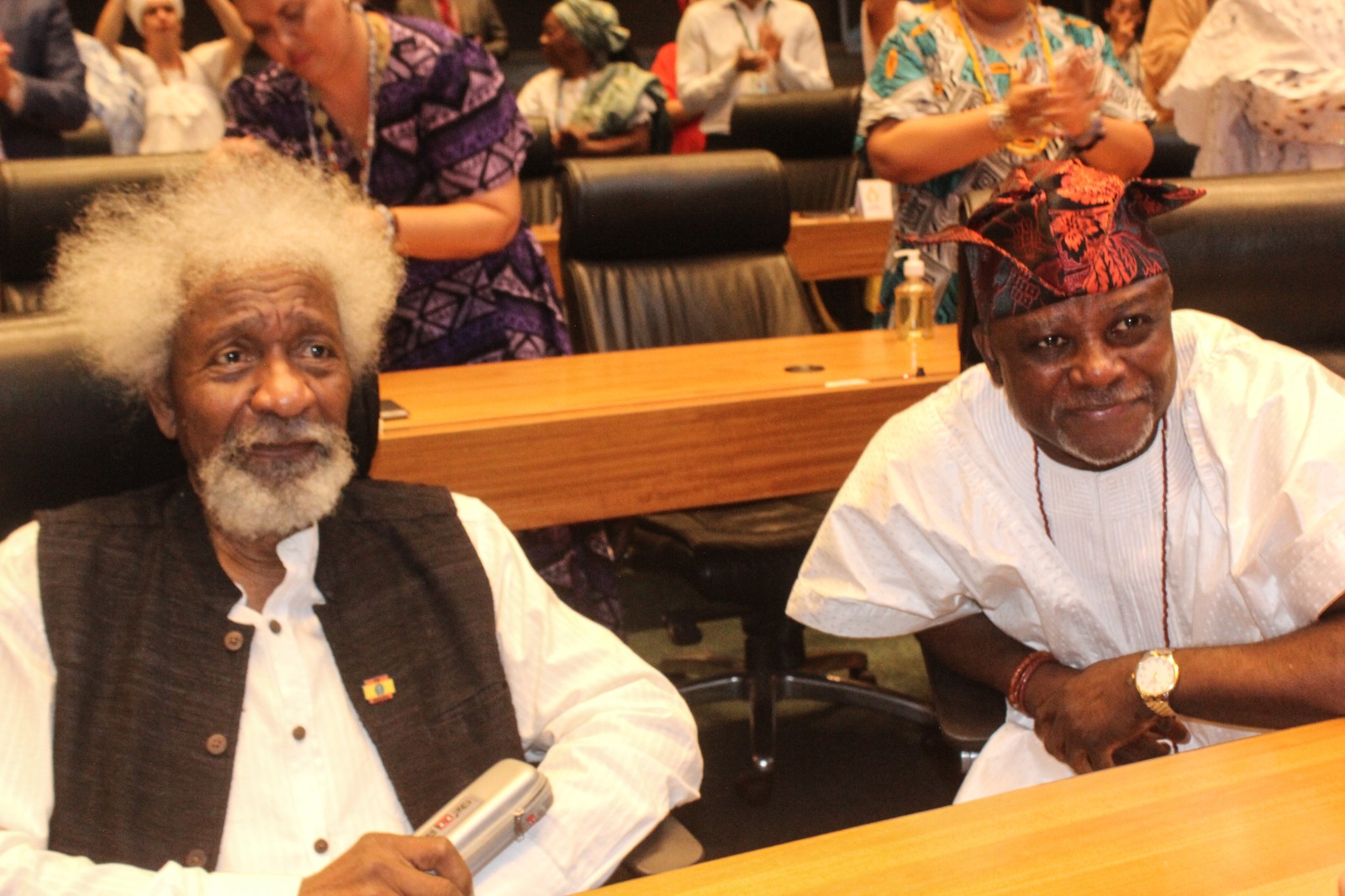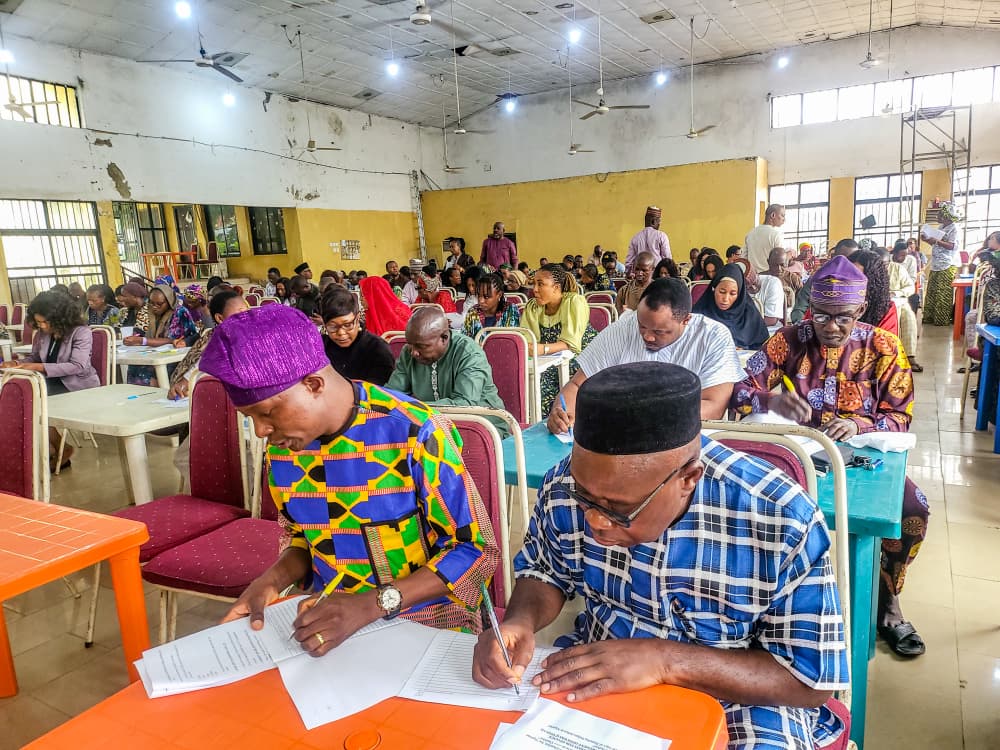Respect for Nigerian cultures and the recognition of traditional rulers, as valuable components of our multi-cultural nation-state will bring stability, social integration and economic development to the country.
 A university don and renowned political analyst, Professor Sophie Oluwole, expressed this view in a one-day workshop for Traditional Rulers, organised by National Institute for Cultural Orientation (NICO) and Lagos State Council for Arts and Culture, on May 21, 2012, at the Multi-Purpose Hall of Lagos State Council for Arts & Culture, Ikeja, in commemoration of World Culture Day 2012.
A university don and renowned political analyst, Professor Sophie Oluwole, expressed this view in a one-day workshop for Traditional Rulers, organised by National Institute for Cultural Orientation (NICO) and Lagos State Council for Arts and Culture, on May 21, 2012, at the Multi-Purpose Hall of Lagos State Council for Arts & Culture, Ikeja, in commemoration of World Culture Day 2012.
Delivering a paper titled: “Traditional Rulers and Stability in a Multi-Ethnic Society,” Professor Oluwole noted that no society that wants true democracy writes off every element of its culture, and that Nigerians would be depleting their intellectual culture by discarding the salient principles of our traditional wisdom.
 She noted that Lagos State, for example, has experienced the least number of ethnic crises and hostilities in the country, despite being host to over two hundred Nigerian ethnic groups, and that Lagos is one of the best civilizations in the country today, because the State Government recognizes the vital role traditional rulers have played for centuries towards peace and stability through accommodation and integration of other ethnic groups into respectable political and social positions in the State.
She noted that Lagos State, for example, has experienced the least number of ethnic crises and hostilities in the country, despite being host to over two hundred Nigerian ethnic groups, and that Lagos is one of the best civilizations in the country today, because the State Government recognizes the vital role traditional rulers have played for centuries towards peace and stability through accommodation and integration of other ethnic groups into respectable political and social positions in the State.
In his Welcome Address, the Honourable Commissioner, Ministry of Home Affairs and Culture, Lagos State, Mr. Oyinlomo Danmole, stated that the main objective of this seminar-oriented World Culture Day Celebration, is to, among other things, examine the changing role of our Traditional Rulers in the dynamic democratic order of Lagos State.
The Commissioner, who was represented by the Permanent Secretary in the Ministry, Mrs. Doyin Olusola, said that the collaboration with the National Institute for Cultural Orientation through this workshop is to create a better platform to facilitate greater synergy between Traditional Rulers and Political Office Holders, for effective peace-building and security at the State and Local Government levels.
On his part, Professor Olakunle A. Lawal, former Commissioner for Education, Lagos State, also supported the use of the traditional institution for alternative dispute resolution (ADR) and opined that traditional rulers should be courageous enough to point out areas that need improvement in Government’s service delivery.
 The traditional institution, he stated in his paper on, “Repositioning Lagos State Traditional Rulers for Effectiveness in a Democracy,” has survived many political dispensations because of its resilience and ability to adapt to changes.
The traditional institution, he stated in his paper on, “Repositioning Lagos State Traditional Rulers for Effectiveness in a Democracy,” has survived many political dispensations because of its resilience and ability to adapt to changes.
The Permanent Secretary in the Governor’s Office, Lagos State, Mr. Kunle Abass, in a paper titled, “The Role of Traditional Rulers in the Emergence of Lagos as a Model Mega City in Africa,” highlighted the duties expected of traditional rulers in Lagos State, which include encouraging their wards to voluntarily discharge their civic responsibilities, assist the security Agencies in maintaining peace and tranquillity, and to partner Government to develop the Tourism potentials of Lagos State for social and economic profits.
The workshop was well attended by most traditional rulers from Lagos State, government officials, cultural administrators, the academia, and members of Staff of NICO and the Lagos State Council for Arts and Culture (LSCAC).
Anthony Okafor
NICO Training School


